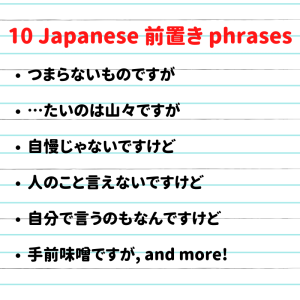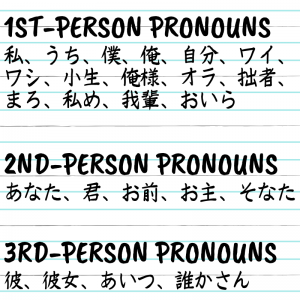This article introduces four weird Japanese kanji characters that you’d enjoy learning: 凸, 凹, 〆, and 卍 !
Table of Contents
凸 and 凹
“凸” and “凹” are two unique kanji characters that mean “protruded” and “dented” (as shown in the kanjis). For instance, 凸(とつ)レンズ and 凹(おう)レンズ mean “convex lens” and “concave lens”, respectively. 凸 is also used in the (slightly old-fashioned) internet slang term 凸(とつ)る, which means “to contact or barge in on someone without an invitation or appointment, often in a sudden and coarse manner (as to enquire about something)”. In fact, this term “abbreviates” the verb 突撃する (とつげきする), meaning “to charge (at someone)”, but using the different kanji 凸 (とつ) rather than 突.
On the other hand, 凹 is used in the word 凹(へこ)む, which means “be dented” or figuratively “feel low/down; a little depressed”, as in the following sentence:
「ごめんね、あなた私のタイプじゃないのよ」と彼女に言われ、へこんだ/凹んだ。 “Sorry, you’re not my type”, she said, and I felt down.
Furthermore, both kanjis can be combined together and make one word “凸凹”, which reads “でこぼこ (dekoboko)” and means “bumpy/rough”, or “凹凸”, which reads “おうとつ (outotsu)” and means “dips and bumps”. For instance, “凸凹(でこぼこ)な道” or “凹凸(おうとつ)のある道” both mean “bumpy road”. 凸凹 (でこぼこ) is also used to figuratively describe a couple of persons who have contrasting personality, appearance, etc. Among the most common phrases using this word is “凸凹(でこぼこ)コンビ”, meaning “a couple of contrasting people”, e.g. a couple of super introverted and extroverted persons. (“コンビ” is a Japanese-English word that means “duo/couple”, which originates from “combination”).
See this post “List of Similar Japanese Kanji With Very Different Meanings” to learn more kanjis that look similar like 凸 and 凹.
〆
〆 reads “しめ (shime)” and is usually used in the word “〆切 (しめきり)” meaning “deadline” (〆切 is also written as “締切” or “締め切り”). Interestingly, 〆 itself is also used as one word that means “something you eat to finish off the meal/drinks”, e.g. 〆にラーメンを食べよう means “Let’s eat ramen as 〆 (the last food that concludes the meal/day)”. Ramen is probably one of the most popular shime food among Japanese people after having lots of drinks, and there are heaps of ramen restaurants in big cities like Tokyo and Osaka that are open 24/7 and welcome plastered people. When we have a hotpot meal, it’s also very common to put rice into the pot before we finish the soup and eat it as 〆, which is called 雑炊 (zousui/rice porridge).
Incidentally, 〆 also denotes the mark we write over the envelope closure (like a stamp) to indicate that it is sealed and has not been opened yet. This is the reason why 〆 has the sense of “closure/conclusion”, which you see in 〆切 (“deadline”), 〆 (“food that concludes the meal”), and also 〆る (しめる), which means “kill (fish) while maintaining the meat quality”; e.g. 活け〆 (“ikejime”; also 活け締め) is one famous traditional method of killing fish in Japan (and now in widespread use globally).
(Advanced Topic) Confusingly enough, there is a word called “〆さば/締めさば (しめさば)”, which means “pickled mackerel”. In this context, 〆る/締める (both read しめる) alludes to the phrase “身を締める”, meaning “tighten the body (of fish)” (since pickling/salting can get rid of the water inside the body).
卍
卍 is originally a mirror image of the ancient religious icon, called “swastika symbol”, and has been used in many countries other than Japan. In Japanese, it reads “まんじ (manji)”, and is used as a map symbol for temples.
Interestingly, however, recently teen girls (especially high school teens) started to use this symbol as their jargon to describe their excitement, especially in the form of the phrase “マジ卍”. It seems (well, I’m not a teen girl so I cannot be very sure about this) it is usually put at the end of a sentence, like “かわいい!マジ卍“, to indicate that they are very excited at something; that said, this word and phrase can be used pretty much anytime and anywhere, to the extent that it does not convey any additional meaning.
Note that now this term has got mostly (but not completely) outdated already among real teen girls. Therefore, if you say マジ卍 in a text/conversation to sound young and casual, you may rather end up looking like a weirdo pretending to appreciate young cultures in Japan.





Leave a Reply